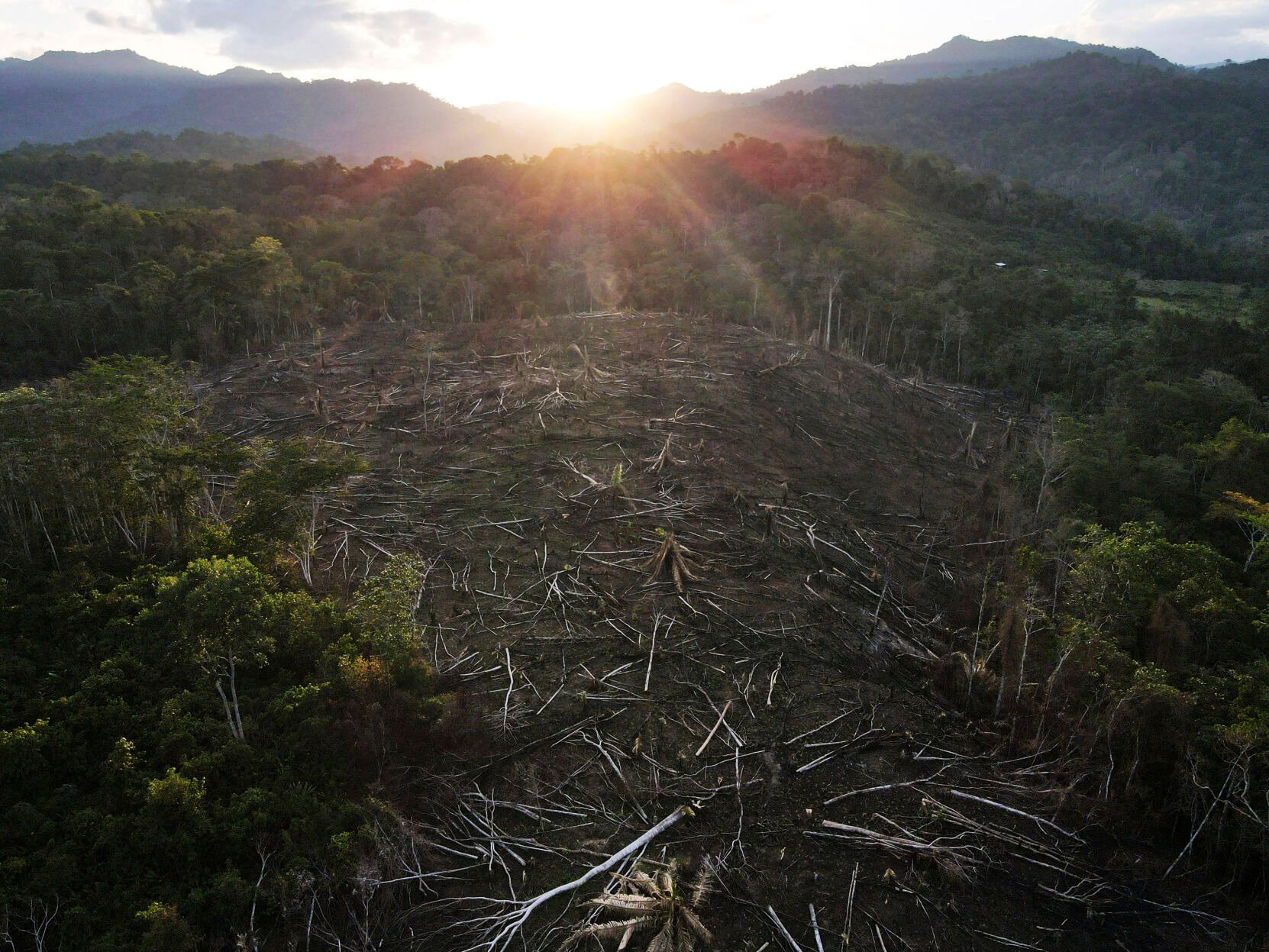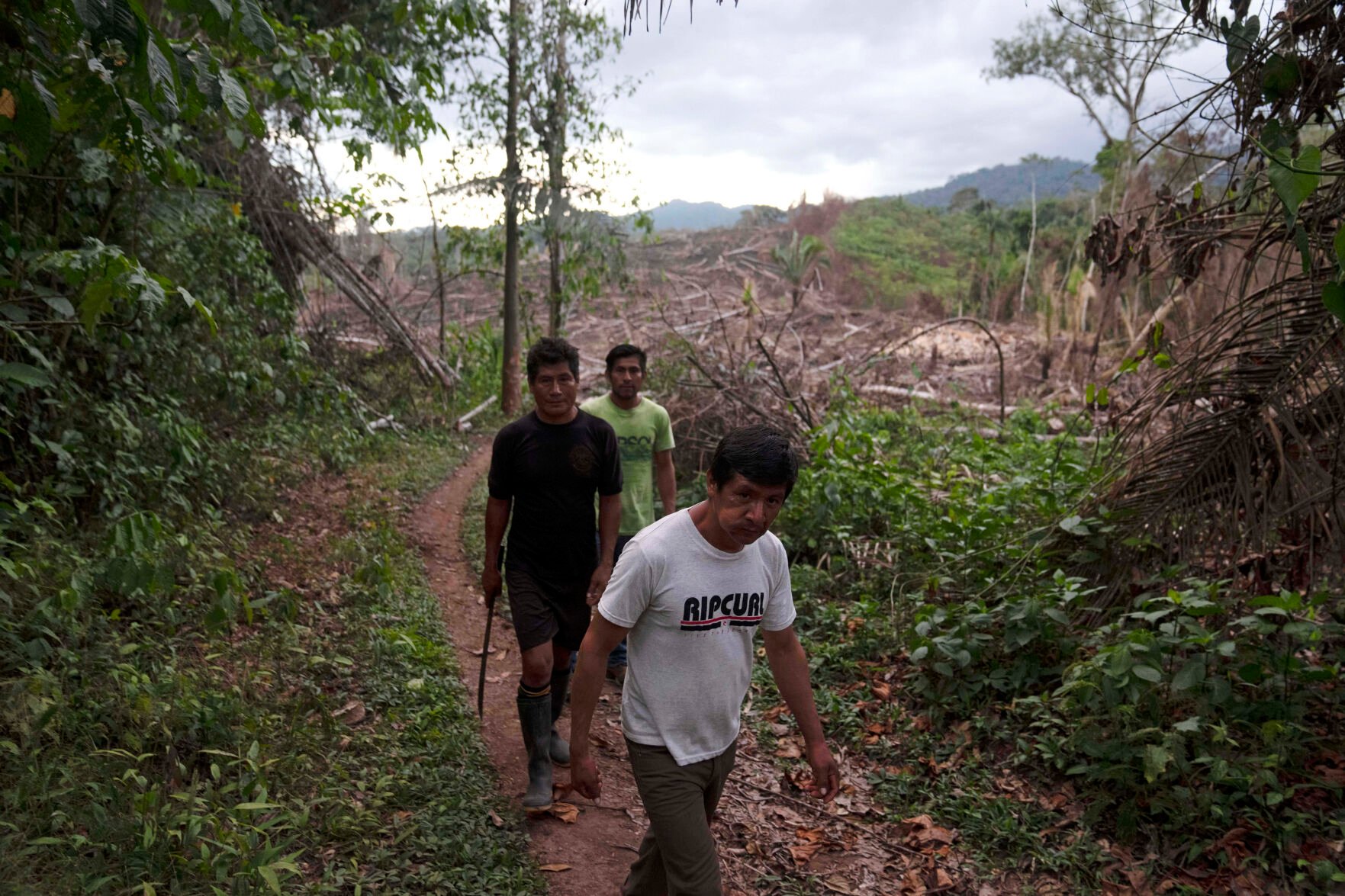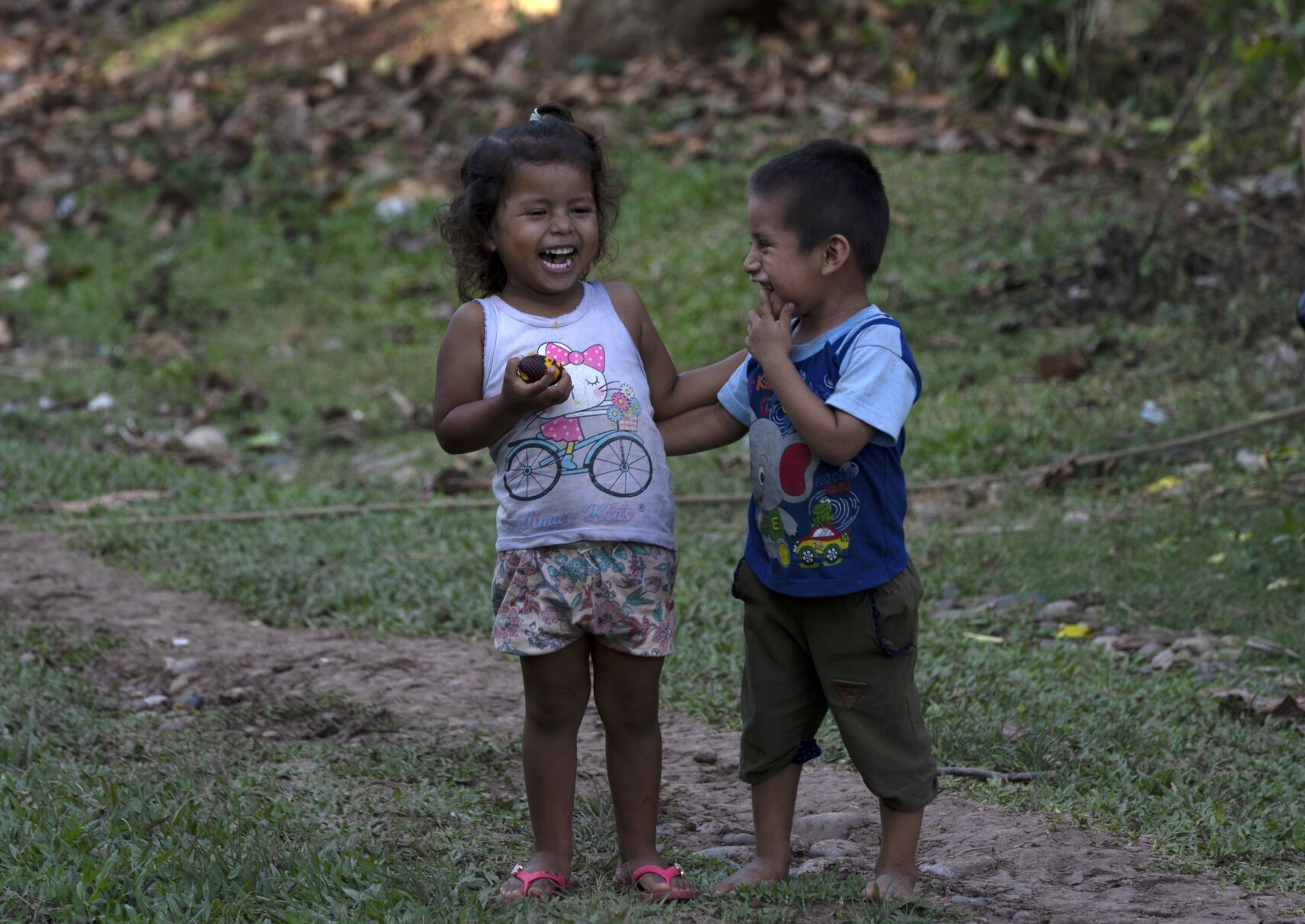In Peru, Kichwa tribe wants compensation for carbon credits
SAN MARTIN, Peru — Rolando Zumba, a gentle 59-year-old, wept, though the moment he described took place many years ago. Nothing has been the same since that day, when a park ranger took away his hunting rifles. Now where there was once self-sufficiency, hunger has stalked his village.
Zumba’s story has its roots in the 2001 creation of Peru’s Cordillera Azul National Park, a stretch of Peruvian Amazon rainforest in the foothills of the Andes where clouds cling to the treetops and morning mists settle over powerful rivers. His story is linked to faraway oil giants Shell and TotalEnergies, who bought carbon credits from the park.

Martin Mejia – staff, AP
Cut down trees lie within view of the Cordillera Azul National Park in Peru's Amazon, Monday, Oct. 3, 2022. Residents in Kichwa Indigenous villages in Peru say they fell into poverty after the government turned their ancestral forest into a national park, restricted hunting and sold forest carbon credits to oil companies.
One day while hunting in the forest now within the park, Zumba said his rifles were seized by armed guards who worked for CIMA, the Spanish acronym for the non-profit set up to protect the national park. When the park was established, Kichwa tribe members like Zumba lost unfettered access to what an Associated Press investigation has found was almost certainly their ancestral land.
Zumba’s livelihood would then take another hit: a 2013 a pestilence decimated his small cacao plantation and to this day he doesn’t have the $1,500 necessary to replant. Meanwhile, just 1.5 miles away, many millions of dollars in oil money began flowing into former tribal territory. Over the last eight years, the park’s management has arranged to sell at least 28 million credits, bringing in tens of millions of dollars, revenues that Kichwa say they have not benefited from.
“Look at the conditions we live in,” said Zumba’s neighbor Segundo Panduro, 77, chicks charging around his feet on the mud floor of his cabin. The authorities “just bring words,” he said. “You can’t live off words.”
Many major polluters pay tropical countries to keep rainforests standing. The trees absorb carbon and buyers get carbon credits that are supposed to cancel out their emissions, helping them meet climate commitments. But industry standards require consent from local communities, who are supposed to benefit.
An International Labour Organization (ILO) convention signed by Peru says lands traditionally used to sustain Indigenous people belong to them.
The Peruvian government and CIMA argue consent wasn’t required here because the park was never Kichwa land. To evaluate the Kichwa’s claims, an AP team journeyed hundreds of miles over mud roads and by boat to seven Kichwa villages.

Martin Mejia – staff, AP
Residents of the Puerto Franco community walk near the limit of Cordillera Azul National Park in Peru's Amazon, Monday, Oct. 3, 2022. Residents in Kichwa Indigenous villages in Peru say they fell into poverty after the government turned their ancestral forest into a national park, restricted hunting and sold forest carbon credits to oil companies.
The investigation found evidence that the villages existed in their current locations outside what is now the park long before it existed, and that people lived by hunting and planting inside the park. In Puerto Franco, a faded sign announced the village and a date — August 1970. A document from 1996 shows a teacher was sent to Puerto Franco that year. At the border of the park, an elder recognized fragments of old pottery on the ground as the kind his grandparents used to make.
Several villages kept logs of community activities going back decades, windows into life in the area long before the park was created. A record of community meetings in 1991 in Callanayacu village, where Zumba lives, detailed concern over young troublemakers and a lost pig. An entry in the diaries of Chambira community described 1996 as the “year of 6,000 tourists.” Satellite images from before the park was created show rainforest clearings for all the villages in almost identical shapes as today.
In each village visited, people older than 40 easily shared memories of hunting and gathering food in what became the park in 2001. They told of waterfalls, hot springs and ravines, and a mountain shaped like a lion’s back. Others recalled their ancestors planting avocado and mango trees inside what is now the park.
All insisted they weren’t consulted about the park or the offsets. Chambira’s chief, Nixon Vasquez, said people initially thought the carbon project was a coal mine. In Spanish the word carbón means coal. An insect-gnawed diary in Allima Sachayuc village documented how a CIMA delegation visited in 2005 to “let them know the history of the creation” of the park.

Martin Mejia – staff, AP
Children laugh while eating a local fruit in the Chambira community, in Peru's Amazon, Tuesday, Oct. 4, 2022. Residents in Kichwa Indigenous villages in Peru say they fell into poverty after the government turned their ancestral forest into a national park, restricted hunting and sold forest carbon credits to oil companies.
In response, Peru’s national parks authority said by email that anthropologists helped establish the park. A Kichwa community group attended a meeting to discuss it in 2001 but raised no concerns, it said.
Satvinder Juss, a human rights law professor at King’s College London who has reviewed Kichwa testimony, said by email the Peruvian government had fundamentally violated the ILO Convention and a United Nations declaration, and must make urgent amends.
In recent times, Kichwa people have been organizing and getting help from groups like the Forest Peoples Programme, an organization that advocates for Indigenous land rights. Kichwa leaders have gone to court to find out how much money was raised by the credits. And at meetings with CIMA, they have demanded compensation or restitution.
Marisol García, a Kichwa activist, said Kichwa carry out barefoot patrols in the forest to confront illegal ranchers and coca growers. Yet when they report illegal tree clearing, the authorities respond that it’s none of their business.
“Nobody thinks about defending the defenders of the forest,” she said.
